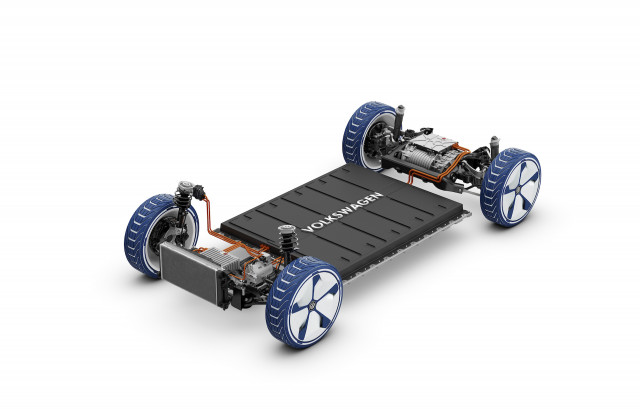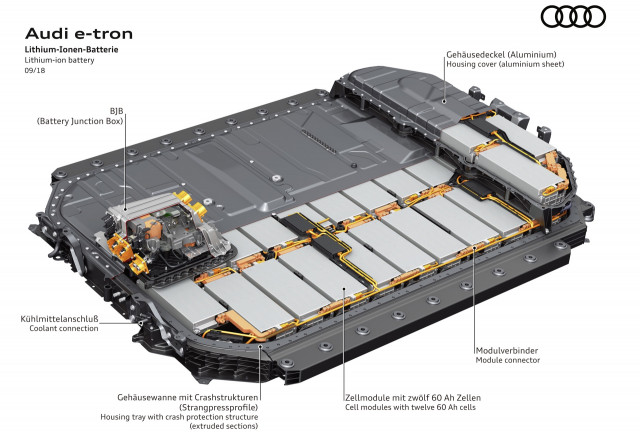Follow Bengt

VW Battery Packs
For the past 50 years, the German auto industry has enjoyed quite the roll of growth and success in the U.S., built largely on its expertise with one specific technology: the internal combustion engine.
But now the importance of that advantage is fading, with electric cars on the rise and the highest-value component within them the battery pack.
Increasingly, companies with headquarters in South Korea, Japan, and China—not Germany—have taken the lead not just on cells and chemistry but in the design of modules and sometimes the entire pack architecture. Meanwhile Volkswagen, for instance, has said that it’s currently developing its final platforms focused around internal combustion engines.
DON’T MISS: German automakers commit to massive battery purchases, sidestep some hard realities
Volkswagen and the Swedish battery supplier Northvolt yesterday announced that they have joined forces to conduct research activities that, VW says, “will cover the entire battery value stream—from raw materials through cell technology to recycling.”

2019 Audi e-tron battery pack
The consortium, called the European Battery Union, will also include the manufacturing stage, resulting in “allowing sustainable, climate friendly and competitive battery cell production in the European Union,” states a release from the automaker, noting that the effort “could receive financial support from funding announced by the German government.”
CHECK OUT: VW confirms it’s planning for solid-state batteries by 2025
Germany has already earmarked $1.14 billion to support battery cell production, according to Reuters, with plans to fund a facility aimed at developing the solid-state battery technology that may start to become common in the later part of the next decade.
Joint research done through European Battery Union will start next year and be exchanged across partners. It's not indicated whether there's any limit on the number of partners, but with most such alliances, the more the merrier.
READ MORE: Report: Battery production could offset emissions gains from electric cars
This is in addition to the European Battery Alliance, a project launched by the European Commission in October 2017, with intent to create a competitive and sustainable battery cell manufacturing value chain. The Alliance has estimated that bringing the EU to a lead role in battery-cell manufacturing could create four to five million jobs.